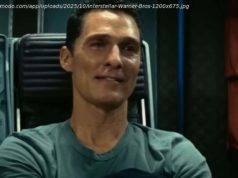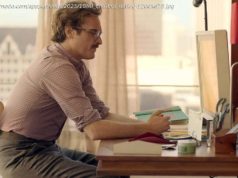Jackson Publick talks the latest season as we make sense of Dr. Venture’s father’s return
The relentlessly self-referential, universe-expanding show that is The Venture Bros. boasts one of TV’s most complex continuities — think Game of Thrones meets Arrested Development, but with more pulpy super-science. It’s so complex, in fact, that even fans have a hard time remembering who is important and why.
Take the ostensible heroes of the show, Hank and Dean Venture. Are they really the titular Venture Bros.? Or was that all sleight of hand to distract early viewers from the other Venture Bros.? The show’s real protagonist (or, well, anti-hero) is Dr. Thaddeus S. “Rusty” Venture, after all, and his late-born ( to put it mildly) twin brother, Dr. Jonas “J. J.” Venture, Jr., isn’t introduced until the end of season one. Or maybe it’s all so showrunners Jackson Publick and Doc Hammer can delay having to answer whether Rusty and his archenemy, the Monarch, are actually brothers?
”The convoluted backstory, that was always in the DNA,” Publick tells Polygon of his intentions for the series. “As a kid, watching a movie like Star Wars, I always liked the storytelling technique of not telling you everything about a character, but definitely hinting at their past. Han Solo: What’s his deal with Jabba the Hutt? Why does Greedo hate him? There’s stuff they’re not telling us that’s probably super cool. So right from the beginning, we gave everybody comments like that — little suggestions that there was a story there — and as you have to keep filling out episodes, you go, ‘Huh, maybe we should actually step into that story. Maybe we should go see how Brock and Molotov [Cocktease] met,’ and stuff like that.”
After years of bricklaying, we know that none of the main Ventures are the most important Venture. That would be Jonas Venture, Sr., Rusty’s late father, who has haunted the Venture family and its hangers-on since the beginning of the show. Figuratively, that is. He’s only literally been haunting them since the season seven premiere, “ The Venture Bros. and the Curse of the Haunted Problem,” aired last week. Which means we’ll likely be seeing even more of him throughout the rest of the season. That makes this the perfect time to ask: What does Jonas Venture, Sr., mean for The Venture Bros.?
When the show started, Jonas was a perfect, psychic foil for Rusty, and a tool used to hammer home the show’s original thesis: If a boy adventurer like Jonny Quest had actually been dragged along on all his father’s crazy adventures, he’d be a pretty screwed up adult. But Publick and Hammer stretched that even further by making Jonas seem perfect.
In appearance, he looks like the perfect cross between Dr. Benton Quest and his bodyguard, Race Bannon (who, with Jonny, Hadji, and the villainous Dr. Zin, actually appear on the show as themselves—with the exception of Benton, that is—before being renamed in later seasons, likely due to copyright issues). A handsome, debonair and brilliant renaissance man, Jonas is admired by heroes and villains alike as an adventurer and inventor for the ages. As a child, Rusty idolized his father, who made him part of the original Team Venture and brought him along on his globetrotting heroic escapades.
But what’s “super cool” on paper is often much less so in practice. As Publick and Hammer have mentioned in interviews (and is now regurgitated ad nauseum by writers, including this one, covering the show), The Venture Bros. is, in many ways, “a show about failure.” Centrally, the show is about Rusty’s failure as a scientist, father and human being, but most of the rest of the cast follow suit in their own ways. Yet Jonas’s is the ür-failure, and the utter catastrophe of his single-fatherhood is responsible for the vast majority of the problems to plague the Venture family.
An incredibly intelligent man-child, Jonas’ egomania and lack of responsibility led to a streak of reckless endangerment. Sometimes, that just meant jetting off to Jackie O.’s wedding while Rusty was abandoned on a Greek island in the Mediterranean, utterly forgotten. Or holding a “swinger’s party” (read: orgy) on the Venture compound while Rusty and another child adventurer were left to their own devices in an adjacent room. Other times, it meant testing scientific experiments on his own child, or using him as bait for a supervillain, or insisting on being his own son’s therapist and calling him “ungrateful” when he told the truth about his feelings.
Later, when Rusty was a teen, Jonas spent the majority of their time together bullying and humiliating his son in front of Jonas’ own friends, the original Team Venture. All this leads Rusty to see his father, as the hilariously-named Dr. Henry Killinger said in the season three episode “The Doctor Is Sin,” as a “tormenter-rival.”
Naturally, when Rusty grew up, he inflicted all the same trauma on his children, dragging Hank and Dean on similarly horrific adventures, replacing them with clones every time they died in a mishap, and mocking, berating or just flat-out ignoring everything they did along the way. (Anyone who thinks BoJack Horseman or Rick & Morty broke new ground with their portrayals of intergenerational trauma never watched The Venture Bros..) Jonas’s shadow, it seems, is one no Venture can escape.
J. J., who never actually knew his father, idolized Jonas. But Rusty, by his own admission, “from the ages of 3-17, accompanied him on hundreds of adventures, the chilling memories of which rouse him from sleep in a chilling sweat to this day.” That was made clear even in the second episode of the show, “Careers In Science.”
It was the first episode Publick and Hammer ever produced, and it served as the basis, 14 years later, for the season seven premiere. Now, Jonas is back — not just as a hallucination hovering over a concussed Rusty as he attempts to turn off a “ problem ” light in the Jonas’ space station, Gargantua 1, but as a disembodied head that is wedded, via science and infernal sorcery, to the internal machinery of the very same mechanism, actually called a P. R. O. B. L. E. M. machine (“PROgressive Biological Life Extension Module”). This means that Jonas’s mysterious offscreen death, which occurred before the events of the series, might finally be revealed — that is, if his ghostly resurrection doesn’t destroy the Venture family first.
There’s more Venture Bros. mythology excavation to come in season seven. Publick calls the third episode “the most self-referential thing we’ve ever done,” noting there will be callbacks from every single season. The final episode of the season, he says, plays like a send-off. “We don’t do a grand finale — we don’t do one of our two-part, hour-long, warring armies/exploding/change the universe forever kind of finales — but we do have a proper end of the season episode this year.
Домой
United States
USA — software Jonas Venture, Sr. is just the beginning of Venture Bros. self-referential season...






